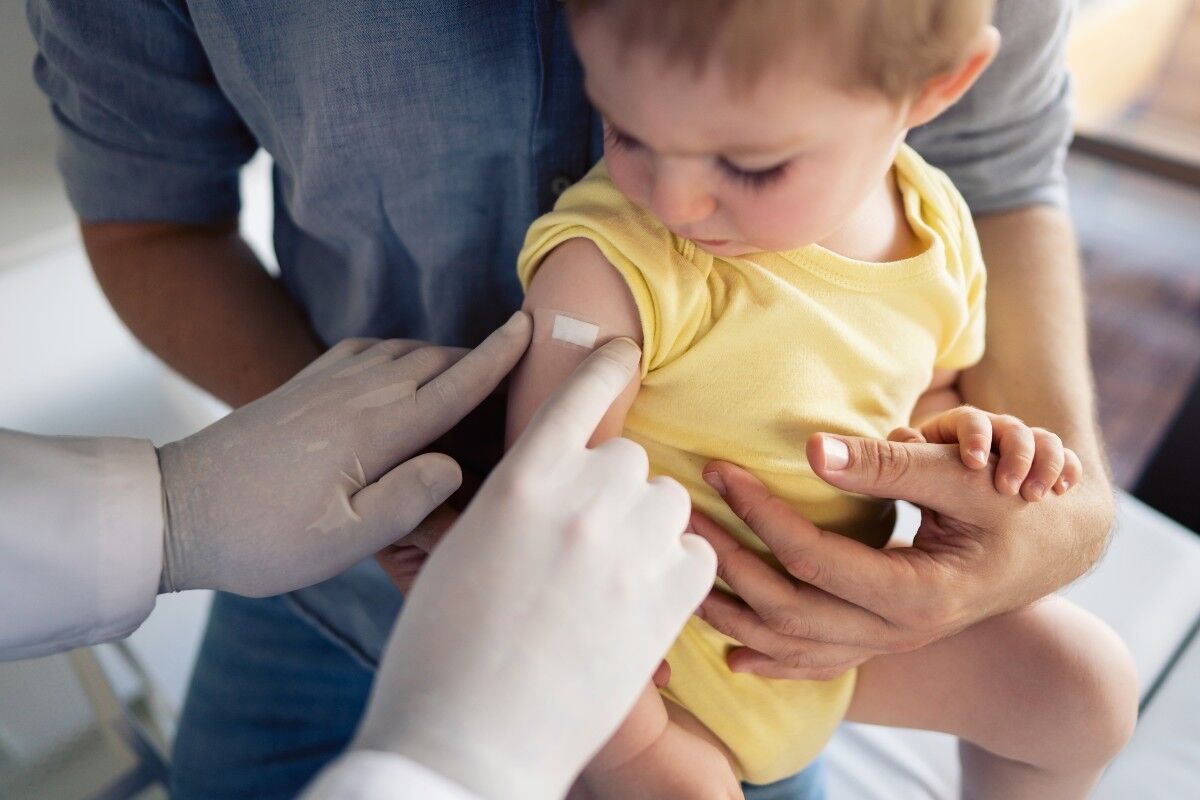‘Stubborn barriers’ to accessing childhood vaccinations, including around booking a GP appointment, are contributing to the ‘worrying decline’ in uptake, paediatricians have claimed.
A report from the Royal College of Paediatrics and Child Health said some parents face significant barriers getting their child vaccinated which is contributing to growing inequalities in coverage.
The current system is fragmented, hard to navigate, and too often fails the very families who need it most, the report found.
A lack of reminders from the GP about upcoming vaccinations as well as having no easy way to check vaccines their children have and have not had were among the issues raised by the college.
Falling vaccine uptake is too often blamed on anti-vaccine sentiment or misinformation when in reality many parents who want to vaccinate cannot access services that work for them, it concluded.
Inflexible appointment systems, inconvenient clinic hours, limited availability of slots or costs of travel all contribute to missed vaccinations, the year-long analysis that included interviews with NHS staff and parents found.
More can also be done to improve outreach initiatives, it said, as well as better data-sharing to help healthcare professionals track who has missed a jab.
But parents also feared being judged for raising concerns about vaccines or having beliefs in alternative medicine. They need clear, accurate and accessible information ‘format and location’ that is convenient as well as opportunities to ask questions.
Healthcare professionals, including allied staff, also need training to feel confident in answering parental concerns and ‘support positive messages’ around vaccination, the report recommended.
A lack of continuity of care was also contributing to the problem, the RCPCH found, with many parents seeing a different GP or clinician at each visit.
Yet the absence of health visitors was an especially significant factor because it prevented better understanding of individual family circumstances that could influence vaccination decisions, the report noted.
Data shows high levels of support for childhood immunisation yet not a single routine childhood vaccine has hit the 95% target recommended by the World Health Organisation since 2021.
Outbreaks of measles and whooping cough last year show the consequences of falling uptake and waning immunity, the report added.
Some ethnic minority groups, socioeconomically disadvantaged families and migrant communities reported specific challenges such as language difficulties, digital exclusion, difficulties in navigating the NHS, and a lack of targeted outreach, the report found.
RCPCH officer for health improvement, Dr Helen Stewart, said: ‘Steady declines in vaccination rates in a wealthy country such as the United Kingdom is extremely concerning.
‘It poses a significant risk to public health, with outbreaks of preventable diseases such as measles and whooping cough already being seen.
‘Parents are often blamed for vaccine hesitancy, but the reality is that there are many who simply need better support and easier access to appointments.
‘With the right guidance and access, they’d gladly protect their children with these essential vaccines. If we are ever to truly tackle low uptake, then we must first ensure that everyone who is willing to be vaccinated is able to do so quickly and easily.’
Dr Julie Yates, deputy director, immunisations programmes at the UK Health Security Agency said: ‘We know our colleagues in general practice and other services are working exceptionally hard to deliver our immunisation programmes and through their efforts they protect millions of children each year.
‘However, we must not become complacent and UKHSA is committed to working with the NHS and partners to improve childhood vaccine uptake.’
She added that the NHS England Vaccination Strategy was already working to improve the ‘front door’ to vaccination, ensuring more flexible appointment booking systems, making vaccines more widely available, making access easier and responding to the specific needs identified within each community.
Professor Helen Bedford, professor of children’s health at University College London, said in the UK, overwhelming majority of parents vaccinate their children ‘without hesitation’ but progress was reversing.
‘Unfortunately, there are large and widening inequalities in vaccine uptake with the most disadvantaged children less likely to be protected.
‘In the face of adversity, it can be challenging for many families to simply get to vaccination appointments, particularly if they are offered at inconvenient times or inaccessible locations.
‘Lack of information about which vaccines are due when, or no opportunity for parents to have a chat with a health professional about their questions and concerns can all present unsurmountable barriers to vaccination.’
But she said implementing the RCPCH recommendations would need investment in infrastructure and staff.
RCGP chair Professor Kamila Hawthorne said: ‘The Childhood Vaccination Programme is one of the great successes of the NHS, but vaccines can only work if enough people have them. Falling take-up rates are therefore extremely concerning and this review does some vital work in identifying the factors that could be behind this and how they can be resolved.
‘We know that some parents do face practical barriers in getting their children vaccinated and, where possible, these need to be broken down. The report’s proposals to achieve this by ensuring there is sufficient funding for vital vaccine services would be an important step, and this should extend to general practice which plays a crucial role in vaccine delivery as the wrap-around care we provide means we’re able to steer patients towards relevant services.
‘Falling take-up rates are a serious risk to public health – if they continue, then outbreaks of conditions including measles and whooping cough will become more likely, putting children and their families at greater risk of potentially deadly health consequences.
‘Maintaining high vaccination rates is a top priority for GPs and we will continue to urge all parents to ensure that their children’s vaccinations are up to date.’
